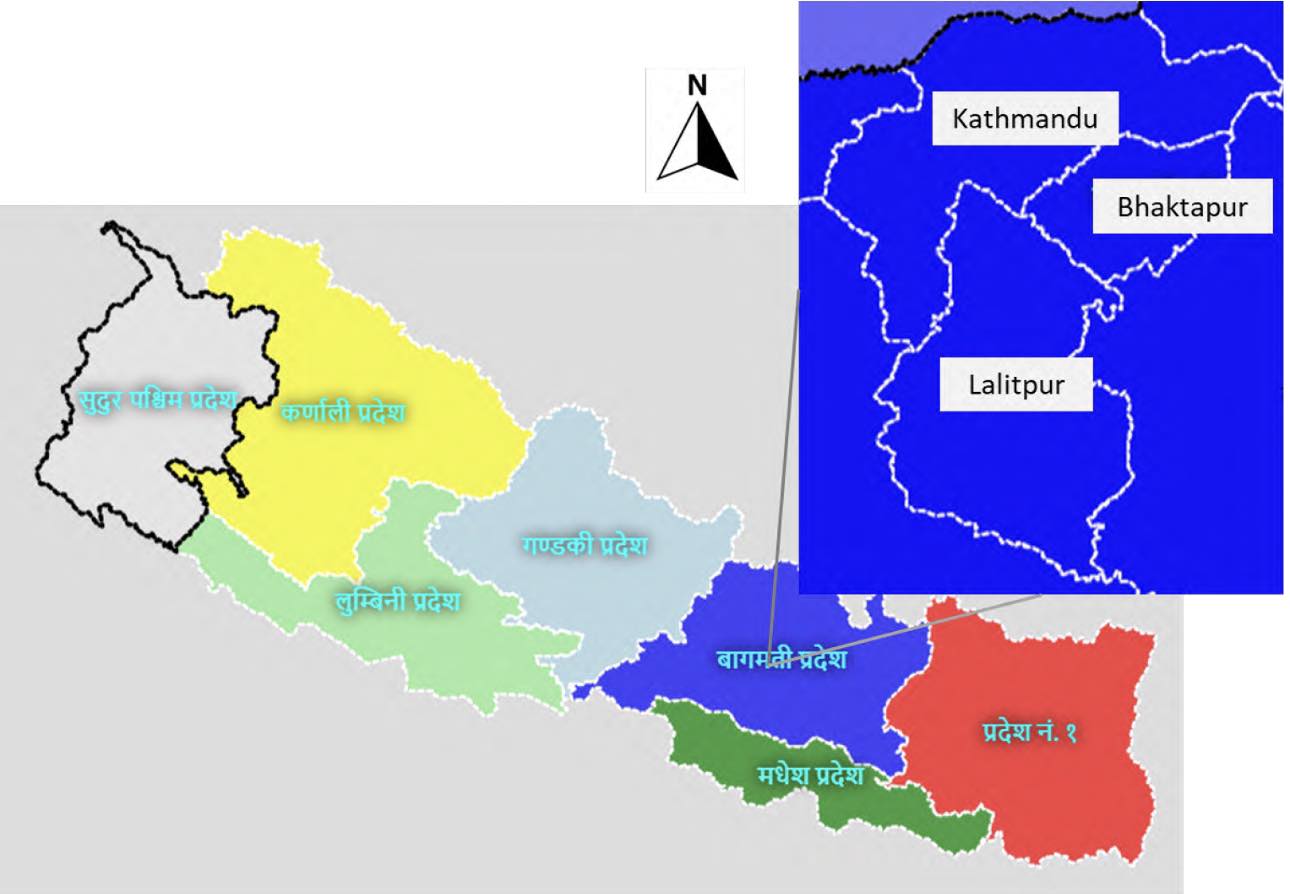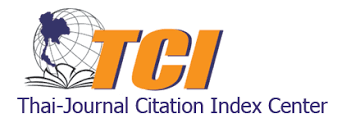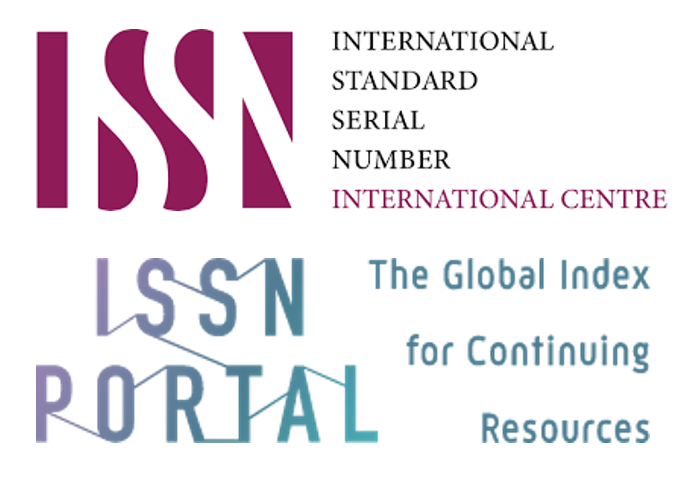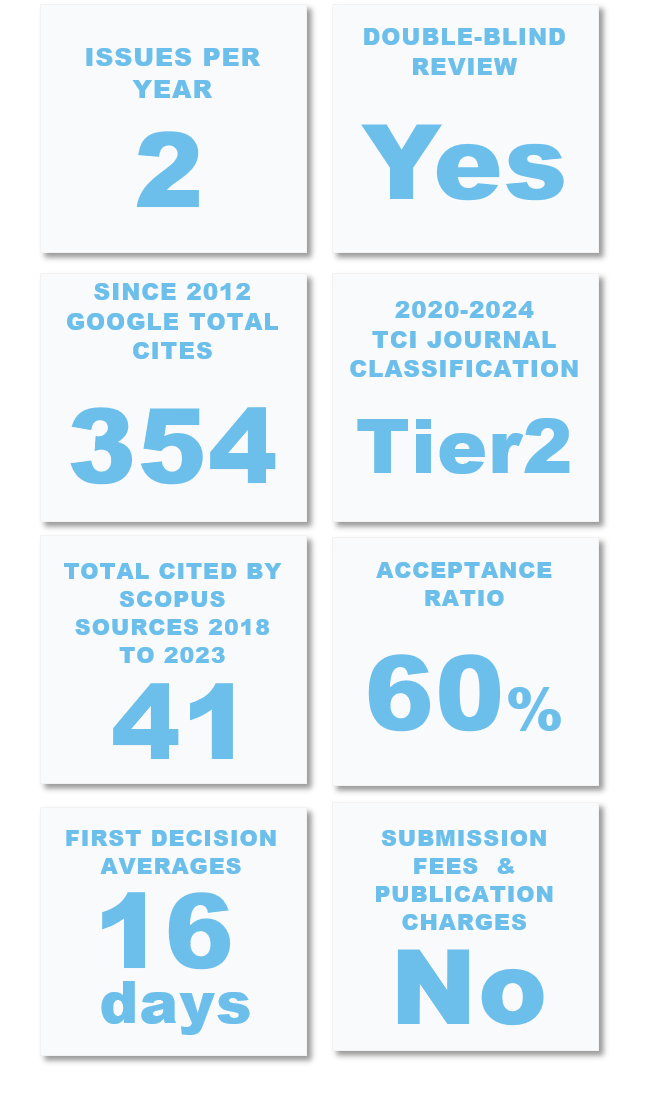Agricultural Land Use Changes and the Remaining/ Emerging Peri-Urban Farmers in Kathmandu Valley of Nepal
DOI:
https://doi.org/10.56261/built.v21.250619Keywords:
peri-urban agriculture (PUA), perishable vegetables, peri-urban farmer, changing land use, transitionAbstract
Peri-urban agriculture PUA is the agriculture practices taking place in the urban/ peri-urban areas, working dynamically to provide food at short supply chain empowering, dependable vegetable supply, jobs, etc. This paper investigated the Kathmandu Valley’s case in Nepal using peri-urban farmers as the key informants growing perishable vegetables in the three adjoining districts and the key reasons behind the permanence of PUA and the strategic approaches peri-urban farmers have adopted in the changing urban context of the Kathmandu Valley. The case-study research method was used as a methodological tool to investigate the transitions of the peri-urban farmers of the Kathmandu Valley in the contemporary bounded scenarios. Peri-urban farmers of the Kathmandu Valley were interviewed with open-ended questionnaires. Results showed a changing land use pattern of the Valley among the peri-urban farmers. This study identified an interesting transition of PUA practices from being traditional farmers to business farmers.
Downloads
References
Adell, G. (1999). Theories and models of the peri-urban interface: A changing conceptual landscape. Strategic Environmental Planning and Management for the Peri-Urban Interface (Research Project Report). Development Planning Unit, University College London.
Allen, A. (2003). Environmental planning and management of the peri-urban Interface: Perspectives on an emerging field. Environment and Urbanization, 15(1), 135-148. DOI: https://doi.org/10.1177/095624780301500103
Almutairi, A. F., Gardner, G. E., & McCarthy, A. (2013). Practical guidance for the use of a pattern-matching technique in case-study research: A case presentation. Nursing & Health Sciences, 16(2), 239–244, https://doi.org/10.1111/nhs.12096 DOI: https://doi.org/10.1111/nhs.12096
Artmann, M., & Sartison, K. (2018). The role of urban agriculture as a nature-based solution: A review for developing a systemic assessment framework. Sustainability, 10(6), 1937. https://doi.org/10.3390/su10061937 DOI: https://doi.org/10.3390/su10061937
Blay-Palmer, A., Santini, G., Dubbeling, M., Renting, H., Taguchi, M., & Giordano, T. (2018). Validating the city region food system approach: Enacting inclusive, transformational city region food systems. Sustainability, 10(5), 1680. https://doi.org/10.3390/su10051680 DOI: https://doi.org/10.3390/su10051680
Central Bureau of Statistics. (2011). Government of Nepal, Kathmandu. CBS. http://www.cbs.gov.np
Cocklin, C., Dibden, J., & Mautner, N. (2006). From market to multifunctionality? Land stewardship in Australia, The Geographical Journal, 172(3), 197–205. https://doi.org/10.1111/j.1475-4959.2006.00206.x DOI: https://doi.org/10.1111/j.1475-4959.2006.00206.x
Dahal, H., Karki, M., Jackson, T., & Panday, D. (2020). New state structure and agriculture governance: A case of service delivery to local farmers in the eastern gangetic plains of Nepal. Agronomy, 10(12), 1874. https://doi.org/10.3390/agronomy10121874 DOI: https://doi.org/10.3390/agronomy10121874
DeFries, R. S., Foley, J. A., & Asner, G. P. (2004). Land-use choices: Balancing human needs and ecosystem function. Frontiers in Ecology and the Environment, 2(5), 249–257. https://doi.org/10.1890/1540-9295(2004)002[0249:lcbhna]2.0.co;2 DOI: https://doi.org/10.1890/1540-9295(2004)002[0249:LCBHNA]2.0.CO;2
Djamaludin, Moh. D., & Silmie, D. M. (2021). Analysis of lifestyle, advertising effectiveness, and instant coffee consumption among peri-urban farmers. Journal of Consumer Sciences, 6(2), 167–182. https://doi.org/10.29244/jcs.6.2.165-180 DOI: https://doi.org/10.29244/jcs.6.2.165-180
Duží, B., Frantál, B., & Simon Rojo, M. (2017). The geography of urban agriculture: New trends and challenges. Moravian Geographical Reports, 25(3), 130–138. https://doi.org/10.1515/mgr-2017-0012 DOI: https://doi.org/10.1515/mgr-2017-0012
Greenawalt, K. (2016). From the bottom up: Selected essay. Oxford Academic. https://doi.org/10.1093/acprof:oso/9780199756162.003.0013 DOI: https://doi.org/10.1093/acprof:oso/9780199756162.001.0001
Gulyas, B. Z., & Edmondson, J. L. (2021). Increasing city resilience through urban agriculture: Challenges and solutions in the global north. Sustainability, 13(3), 1465. https://doi.org/10.3390/su13031465 DOI: https://doi.org/10.3390/su13031465
Hazell, P., & Wood, S. (2008). Drivers of change in global agriculture, philosophical transactions of the Royal Society B. Biological Sciences, 363(1491), 495–515. http://dx.doi.org/10.1098/rstb.2007.2166 DOI: https://doi.org/10.1098/rstb.2007.2166
International Centre for Integrated Mountain Development. (2016). ICIMOD Annual Report 2016. https://doi.org/10.53055/icimod.835 DOI: https://doi.org/10.53055/ICIMOD.835
Ishtiaque, A., Shrestha, M., & Chhetri, N. (2017). Rapid urban growth in the Kathmandu Valley, Nepal: Monitoring land use land cover dynamics of a Himalayan City with landsat imageries. Environments, 4(4), 72. https://doi.org/10.3390/environments4040072 DOI: https://doi.org/10.3390/environments4040072
Ives, C.D., & Kendal, D. (2013). Values and attitudes of the urban public towards peri-urban
agricultural land. Land Use Policy, 34, 80–90. http://dx.doi.org/10.1016/j.landusepol.2013.02.003 DOI: https://doi.org/10.1016/j.landusepol.2013.02.003
Kaplan, R. (1984), Impact of urban nature: A theoretical analysis. Urban Ecology, 8(3), 189–197. http://dx.doi.org/10.1016/0304-4009(84)90034-2 DOI: https://doi.org/10.1016/0304-4009(84)90034-2
Karki, T. K. (2004). Challenges in managing a government town planning office in Nepal. Environment and Urbanization, 16(2), 223–233. http://dx.doi.org/10.1177/095624780401600213 DOI: https://doi.org/10.1630/0956247042309991
Kassem, H. S., Alotaibi, B. A., Muddassir, M., & Herab, A. (2021). Factors influencing farmers’ satisfaction with the quality of agricultural extension services. Evaluation and Program Planning, 85, 101912. https://doi.org/10.1016/j.evalprogplan.2021.101912 DOI: https://doi.org/10.1016/j.evalprogplan.2021.101912
Lancelotti, C., Zurro, D., Whitehouse, N. J., Kramer, K. L., Madella, M., García-Granero, J. J., & Greaves, R. D. (2016). Resilience of small-scale societies’ livelihoods: A framework for studying the transition from food gathering to food production. Ecology and Society, 21(4). https://doi.org/10.5751/es-08757-210408 DOI: https://doi.org/10.5751/ES-08757-210408
Mendes, W., Balmer, K., Kaethler, T., & Rhoads, A. (2008). Using land inventories to plan for urban agriculture: Experiences from Portland and Vancouver. Journal of the American Planning Association, 74(4), 435–449. https://doi.org/10.1080/01944360802354923 DOI: https://doi.org/10.1080/01944360802354923
Ministry of Federal Affairs and General Administration (MoFAGA). (2019). Government of Nepal, Kathmandu. http://mofaga.gov.np/
Nadal, A., Cerón-Palma, I., García-Gómez, C., Pérez-Sánchez, M., Rodríguez-Labajos, B., Cuerva, E., Josa, A., & Rieradevall, J. (2018). Social perception of urban agriculture in Latin-America. A case study in Mexican social housing. Land Use Policy, 76, 719–734. https://doi.org/10.1016/j.landusepol.2018.02.055 DOI: https://doi.org/10.1016/j.landusepol.2018.02.055
Nyapendi, R., Best, R., Ferris, S., & Jagwe, J. (2010). Identifying market opportunities for urban and peri-urban farmers in Kampala. In G. Prain, D. Lee-Smith & N. Karanja (Eds.), African Urban Harvest, (pp. 139–165). Springer. https://doi.org/10.1007/978-1-4419-6250-8_8 DOI: https://doi.org/10.1007/978-1-4419-6250-8_8
Nie, J., Kiminami, A., & Yagi, H. (2022). Exploring the sustainability of urban leisure agriculture in Shanghai. Sustainability, 14(8), 4813. https://doi.org/10.3390/su14084813 DOI: https://doi.org/10.3390/su14084813
Orsini, F., Kahane, R., Nono-Womdim, R., & Gianquinto, G. (2013). Urban agriculture in the developing world: A review. Agronomy for Sustainable Development, 33(4), 695–720. https://doi.org/10.1007/s13593-013-0143-z DOI: https://doi.org/10.1007/s13593-013-0143-z
Östberg, W., Howland, O., Mduma, J., & Brockington, D. (2018). Tracing improving livelihoods in rural Africa using local measures of wealth: A case study from central Tanzania, 1991–2016. Land, 7(2), 44. https://doi.org/10.3390/land7020044 DOI: https://doi.org/10.3390/land7020044
Paudel, M. N. (2016). Prospects and limitations of agriculture industrialization in Nepal. Agronomy Journal of Nepal, 4, 38. https://doi.org/10.3126/ajn.v4i0.15515 DOI: https://doi.org/10.3126/ajn.v4i0.15515
Phuong Le, N., & Nguyen, M. D. (2018). Multifunctionality of peri-urban agriculture: A case study in Trau Quy Commune, Hanoi city. International journal of Rural Development, Environment and Health Research. 2. 8-19. https://doi.org/10.22161/ijreh.2.4.2 DOI: https://doi.org/10.22161/ijreh.2.4.2
Rachmawati, R., Rijanta, R., & Djunaedi, A. (2015). Location decentralization due to the use of information and communication technology: Empirical evidence from Yogyakarta, Indonesia. Human Geographies – Journal of Studies and Research in Human Geography, 9(1), 5-15. http://dx.doi.org/10.5719/hgeo.2015.91.5 DOI: https://doi.org/10.5719/hgeo.2015.91.5
Rana, S., & Marwasta, D. (2015). Urbanisation trends in developing countries: Comparative study of Yogyakarta City and Kathmandu Valley. Journal of Natural Resources and Development, 5, 29- 36. https://journals.ub.uni-koeln.de/index.php/JNRD/article/view/719/746 DOI: https://doi.org/10.5027/jnrd.v5i0.04
Rana, S., Raden, R., & Rachmawati, R. (2015). Multifunctional peri-urban agriculture and local food access in the Kathmandu Valley, Nepal: A review. Journal of Natural Resources and Development, 5, 88-96. https://pdfs.semanticscholar.org/459e/de08b93d46daaff8fd952a2ef5929a5f3132.pdf DOI: https://doi.org/10.5027/jnrd.v5i0.12
Rana, S., Raden, R., & Rachmawati, R. (2017). Exploring peri-urban agriculture and existing farmers in the Kathmandu Valley. Romanian Review of Regional Studies, 13(1), 59-70. https://www.researchgate.net/publication/330337845_EXPLORING_PERI-URBAN_AGRICULTURE_AND_EXISTING_FARMERS_IN_THE_KATHMANDU_VALLEY
Ridder, H.-G. (2017). The theory contribution of case study research designs. Business Research, 10(2), 281–305. https://doi.org/10.1007/s40685-017-0045-z DOI: https://doi.org/10.1007/s40685-017-0045-z
Sarif, Md. O., Rimal, B., & Stork, N. E. (2020). Assessment of changes in land use/land cover and land surface temperatures and their impact on surface urban heat island phenomena in the Kathmandu Valley (1988–2018). ISPRS International Journal of Geo-Information, 9(12), 726. https://doi.org/10.3390/ijgi9120726 DOI: https://doi.org/10.3390/ijgi9120726
Scoones, I. (2009). Livelihoods perspectives and rural development. Journal of Peasant Studies, 36(1), 171–196. http://dx.doi.org/10.1080/03066150902820503 DOI: https://doi.org/10.1080/03066150902820503
Shrestha, R.M. (2007). Urbanization and changes in cropping patterns at Kathmandu Valley, Nepal. Journal of Science and Technology, 7, 113. http://dx.doi.org/10.3126/njst.v7i0.581 DOI: https://doi.org/10.3126/njst.v7i0.581
Specht, K., Siebert, R., Hartmann, I., Freisinger, U. B., Sawicka, M., Werner, A., Thomaier, S., Henckel, D., Walk, H., & Dierich, A. (2013). Urban agriculture of the future: An overview of sustainability aspects of food production in and on buildings. Agriculture and Human Values, 31(1), 33–51. https://doi.org/10.1007/s10460-013-9448-4 DOI: https://doi.org/10.1007/s10460-013-9448-4
Sullivan, W.C. (1994). Perceptions of the rural-urban fringe: Citizen preferences for natural and developed settings. Landscape and Urban Planning, 29,(2-3), 85–101. http://dx.doi.org/10.1016/0169-2046(94)90020-5 DOI: https://doi.org/10.1016/0169-2046(94)90020-5
Tacoli, C. (2001). Livelihoods impacts and strategies of the periurban poor. In Proceedings of the conference on rural-urban encounters: Managing the environment of the periurban interface.
Thapa, R.B., & Murayama, Y. (2012). Scenario based urban growth allocation in Kathmandu Valley, Nepal. Landscape and Urban Planning, 105(1-2), 140–148. http://dx.doi.org/10.1016/j.landurbplan.2011.12.007 DOI: https://doi.org/10.1016/j.landurbplan.2011.12.007
Turner, K., Davidson-Hunt, I., & Desmarais, A. (2017). Agrobiodiversity, rural transformations and household experiences of globalised change: A case study from southern Bolivia. Rural Landscapes: Society, Environment, History, 4(1). https://doi.org/10.16993/rl.36 DOI: https://doi.org/10.16993/rl.36
United Nations, Department of Economic and Social Affairs (UNDESA). (2015). World Urbanization Prospects. The 2014 Revision.
Vermeulen, S. J., Aggarwal, P.K., Ainslie, A., Angelone, C., Campbell, B.M., Challinor, A.J., Hansen, J.W., Ingram, J.S.I., Jarvis, A., Kristjanson, P., Lau, C., Nelson, G.C., Thornton, P.K., & Wollenberg, E. (2012). Options for support to agriculture and food security under climate change. Environmental Science & Policy, 15(1), 136–144. http://dx.doi.org/10.1016/j.envsci.2011.09.003 DOI: https://doi.org/10.1016/j.envsci.2011.09.003
Yin, R. K. (2009). Case study research: Design and methods (4th ed., Applied Social Research Methods Series). Sage Publication.

Downloads
Published
How to Cite
Issue
Section
License
Copyright (c) 2023 International Journal of Building, Urban, Interior and Landscape Technology (BUILT)

This work is licensed under a Creative Commons Attribution-NonCommercial-NoDerivatives 4.0 International License.











